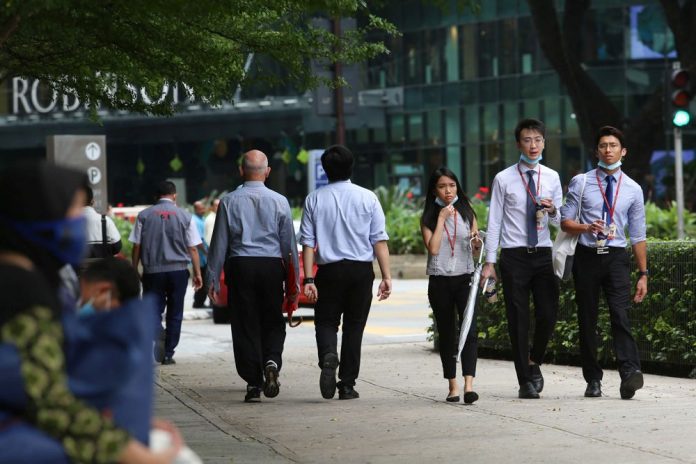.jpg)
KUALA LUMPUR, Dec 28 — Nine out of 10 Malaysian employees in a recent survey believe that learning new skills or widening their set of skills are necessary to stay relevant in an increasingly uncertain job market after the Covid-19 pandemic is over, bank UOB said today.
UOB said this widespread view held by 90 per cent of respondents in the UOB Asean Consumer Sentiment Study in July was amid expectations among Malaysians that it will be tough to secure new jobs due to the economic recession.
According to UOB, the survey conducted jointly by the bank and Blackbox in July showed similar sentiments among respondents in four neighbouring countries in South-east Asia.
“Similar to Malaysia, the majority of employees in Indonesia (93 per cent), Singapore (90 per cent), Thailand (93 per cent) and Vietnam (92 per cent) see the need to reskill or to upskill as key to staying competitive,” UOB said.
The UOB survey had polled 3,510 individuals aged between 18 and 65 in five countries, namely 1,030 from Singapore, and 2,480 in Malaysia, Indonesia, Thailand and Vietnam.
Zooming in specifically on Malaysians polled in the survey, UOB said 85 per cent of them believe that companies will prefer hiring people who can perform multiple functions, while 83 per cent believe that employers will reduce the size of the workforce by increasing efforts for digitalisation, and 78 per cent expect companies to retrench employees to cut costs.
UOB noted that the youngest age group in the workforce had the strongest concerns about job security, with 94 per cent of those in Generation Z (aged between 18 and 23) believing that employers will retrench or terminate staff to cut costs if needed.
The same belief of possible workforce downsizing to cut costs was also held — although to a lesser extent — by Generation X (aged 40 to 55) at 77 per cent and Generation Y (aged 24 to 39) at 76 per cent.
Lai Tak Ming, UOB Malaysia’s executive director and country head of human resources, said the Covid-19 pandemic has highlighted the importance of continuous learning and development for employees.
“This year has rapidly changed the way we work and these changes will continue to influence how organisations are run in a post-pandemic future.
“It is imperative for companies to have a workforce that is agile and adaptable in order to weather the ever-changing working conditions brought on by uncertainty and disruptions,” he said in a statement.
Lai said UOB Malaysia — which has more than 5,000 employees — is committed to training and developing its staff continually to ensure that they are equipped with future-ready skills, noting: “The crisis has accelerated digitalisation and it is important that our people have the necessary skills to meet the needs of a new generation of increasingly tech-savvy customers.”
According to UOB Malaysia, it has various training programmes featuring on-the-job experiences for new graduates and mid-career professionals, including its 12-week foundation course “Better U” programme launched in March for its own staff to help them build a growth mindset, develop complex problem-solving skills, and acquire skills in the fields of digital innovation, human-centred design and data storytelling.
There are more than 600 UOB Malaysia staff who have completed the “Better U” programme, with the second phase to be rolled out in 2021.
As for fresh graduates, UOB Malaysia said its 18-month Management Associate (MA) programme gives them an opportunity to develop and fast-track their banking careers, with the programme featuring training through structured classroom training, coaching and mentoring sessions, on-the-job functional rotations, regional job rotations and participation in the bank’s strategic corporate projects.
UOB Malaysia said it had accepted 20 graduates for its MA programme over the last three years.
As for university students wishing to explore a banking career, UOB Malaysia said it has accepted over 118 undergraduates under its Smart Bankers Internship programme over the past three years, to allow them to have practical experience through on-the-job training and mentoring sessions.
“Interns who perform well in this programme are likely to have better chances when they apply for the bank’s various entry-level young graduate pathways including the flagship UOB Malaysia MA programme,” it said.
UOB Malaysia said jobseekers who would like to know more about the traineeship programmes and career growth opportunities could visit its LinkedIn page.


